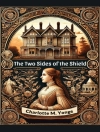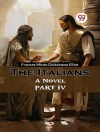George Moore’s ‘The Untilled Field’ is a poignant exploration of Irish rural life in the late 19th century, articulated through a remarkable blend of realism and impressionism. The narrative unfolds through a series of interconnected stories that depict the struggles of peasants grappling with poverty, social constraints, and the yearning for a more meaningful existence. Moore’s lyrical prose, juxtaposed with stark depictions of the harsh realities of agrarian life, creates a vivid landscape where familial bonds, love, and aspiration collide with the unyielding forces of tradition and fate. This collection not only illuminates the complexities of Irish identity but also reflects the broader literary movements of the time, including naturalism and modernism, which sought to capture the zeitgeist of contemporary society with unflinching honesty. Born in 1852 in County Mayo, George Moore was a key figure in the Irish literary renaissance. His own experiences with the tumultuous sociopolitical environment of Ireland, coupled with his exposure to the avant-garde movements in Paris, greatly influenced his literary voice. Moore’s commitment to depicting the raw truths of human experience led him to challenge conventional norms, thereby positioning ‘The Untilled Field’ as a significant work that embodies his vision for Irish literature. For readers interested in the intersection of personal narrative and social commentary, ‘The Untilled Field’ is a must-read. Moore’s intricate character studies and evocative settings offer not only a window into the life of rural Ireland but also a timeless meditation on the universal themes of love, loss, and the quest for individuality. This book will resonate with both literary scholars and casual readers alike, drawing them into a richly textured world that echoes with the voices of those forgotten by history.
Giới thiệu về tác giả
George Moore (1852–1933) was a pre-eminent Irish novelist, short story writer, poet, art critic, memoirist, and dramatist of the late 19th and early 20th centuries. His literary contributions are distinctive for their realism and fearless exploration of contemporary issues, markedly seen in his novel ‘A Modern Lover’ (1883) which was banned for its candor and exploration of taboo subjects. Born into a Catholic land-owning family in County Mayo, Ireland, Moore’s early years were spent in the milieu of the Irish Protestant Ascendancy, an experience that influenced his later writing. He lived for a time in Paris, mingling with the Impressionist painters, which honed his aesthetic sensibilities and on return to London, he became entwined with Literary Naturalism. Moore’s contributions to literature also include ‘Esther Waters’ (1894), a novel praised for its unwavering depiction of Victorian England, and ‘The Untilled Field’ (1903), a collection of short stories, lauded for its role in the Irish Literary Revival, shedding light on the lives of ordinary Irish people in both rural and urban settings with linguistic finesse and narrative poise. His persuasive dialogue for Irish literary nationalism and realist representation in the arts make George Moore a pivotal figure alongside contemporaries such as W. B. Yeats and J. M. Synge in the shaping of modern Irish literature.












